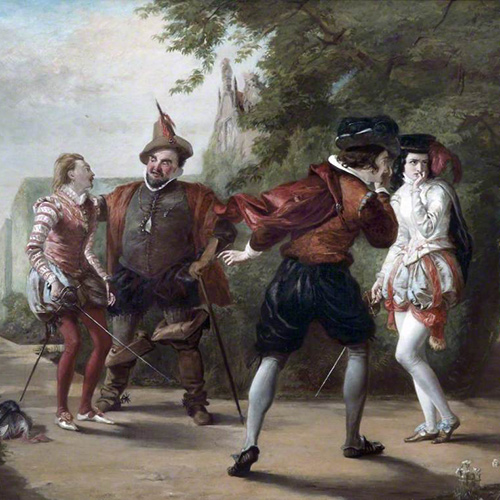
The Duel Scene from ‘Twelfth Night’ by William Powell Frith, 1842 (Walker Art Gallery)
Though Shakespeare is well-known for such tragedies as Hamlet, King Lear, and Macbeth, he is also one of the greatest playwrights in the history of comedy. Joseph Luzzi, a professor of literature at Bard College, explores how three of Shakespeare’s comedies—A Midsummer Night’s Dream, Twelfth Night, and As You Like It—continue to enchant audiences with their brilliant psychological insights, profound meditations on human nature, and spellbinding lyricism. Luzzi provides a fascinating look into Shakespeare’s comic universe and its relevance to our modern world.
10–11 a.m. Shakespeare’s Comedies: Elements of a Genre
Luzzi provides an overview of the fundamental elements of Shakespeare’s understanding of the genre of comedy, especially in relation to other forms of his writing, with an emphasis on tragedy and history.
11:15 a.m.–12:15 p.m. A Midsummer Night’s Dream: Shakespearean Lyricism
Luzzi explores such key elements of A Midsummer Night’s Dream as its use of song and lyrics, magic, and the supernatural. He also considers Shakespeare’s creation of alternate “theatrical spaces" within the play.
12:15–12:45 p.m. Break
12:45–1:45 p.m. As You Like It: The Forest, the Court, and the Spaces of Comedy
Luzzi discusses the construction of gender in As You Like It and how magical spaces like the Forest of Arden help us understand Shakespeare’s brilliant use of inventive theatrical forms.
2–3 p.m. Twelfth Night: Mistaken Identity and Misplaced Desire
Luzzi takes participants inside Twelfth Night to consider how its themes of disguise, sibling love, and the “poetics of desire” result in one of the great masterpieces of Shakespearean comedy.
General Information